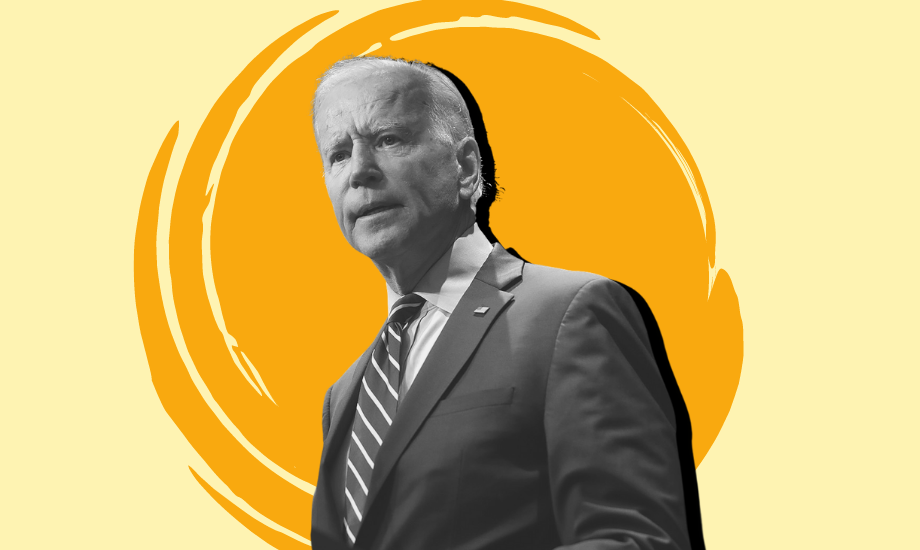
Let’s make the Biden presidency revolutionary
From beautiful moments of left-wing solidarity during the vote counting to an influx of Native American women in the US Congress, electoral politics might not be the solution but it can pave the way.
Sahar Shah
07 Nov 2020
Photography via Creative Commons
After 82 hours of labour, we have finally given birth to… a 77-year-old white man. And, in a true testament to the bizarre nature of this precise moment in 2020, we couldn’t be happier. This is a significant victory in terms of political vision. It showed some much-needed solidarity amongst the political “left” and, crucially, brought a record number of progressive women of colour and Indigenous women to Congress. The election result may not be radical, but perhaps it’s the first step on a path towards revolution.
In 2016, I wrote that we’d been Trumped after the outcome that “nobody expected” occurred. In the four years since the surreal horror show of 2016 we have seen a global pandemic, months of protests against anti-Black racism, a Trump-enforced genocide against migrants at the US’s Southern border and massive blows to global climate goals. Yet now we have a glittering, high-stakes victory for the American left. This victory is also an outcome that nobody really expected until the tide started to turn 1.5 days into the vote counting period.
Firstly: this is a victory. Will it dismantle the colonial foundation upon which the United States is built? No. Is it a revolution that allows us to build anew? No. But it is still something. It will make a material difference in many people’s lives and if we need any convincing about its importance, we need only look to the sheer solidarity formed across the left to deliver this victory. Remember: unseating an incumbent president after their first term is unusual, and the economy was seeing improvements under Trump that would have translated into increases in quality of life for many in America prior to the pandemic.
Big wins
I was particularly struck by the automatic use of the word “we” in my conversations over the past few days – messages like “we might flip Wisconsin” and “we might lose Pennsylvania” pinged in constantly from group chats. I’m not always quite this politically aligned with such a broad range of people in my everyday life and to feel that sense of complete unity and connection over the past few days has been touching. I’m tearing up writing this. I’ll miss the love and I will really, really miss the memes.
The beautiful moments of solidarity that characterised the vote counting period and held strong for three days (!!) are important. They are proof that the left can come together and organise; countering a longstanding sense that we might be irredeemably fragmented. There were individuals and celebrities phone banking for the Democrats, including a mega public session with Beto O’Rourke and AOC. American television personalities Padma Lakshmi and Kumail Nanjiani’s ongoing updates and meme-sharing on Twitter throughout the night, this absolutely perfect mail-in ballot meme shared by Kimberlé Crenshaw on the second day of vote counting.
The first, and dare I say most significant victories of the election came when the “squad” was re-elected and Cori Bush was added to their ranks. Mauree Turner became the first non-binary state legislator, with transgender nonbinary and gender-nonconforming representation almost doubling across the country. Progressives dragged the Democrat’s platform a few inches to the left. The political gains could result in substantial material improvements in the lives of extremely vulnerable people. This election also saw the highest number of Native American women ever elected to US Congress and the re-election of an Indian-American foursome referred to as the “Samosa Caucus” (no comment, for now).
The last few days feel a bit like a blur but the emotions that characterised it are important – the roller coaster of joy and oddness and hilarity is a good reminder of what we are fighting for. Friends and family staying up late together, scrutinising numbers, keeping one another posted about minute details. “VERY STRANGE” memes interspersed with #countthevotes. The love shared and displayed over the last few days is important. We can cherish it regardless of what it means politically and practically. Love is important in its own right.
Political improvements
A major narrative to emerge from this election was the false aggregation of PoC voters, largely in reference to Biden’s relative underperformance with Latinx and Black voters. Firstly, most people of colour did not vote for Trump! Trump is (was, with any luck) a white phenomenon. Conversely, Biden owes his victory to the black women considered the backbone of the Democratic party and grassroots organisers like Stacey Abrams. Though this work has often gone unrecognised, Stacey drew substantial and heartwarming recognition from a diverse range of commentators as Biden gained ground in Georgia.
But the PoC voters that did vote for Trump are far too easily dismissed by the left as “idiots”, or worse. This labelling is, obviously, problematic. Most examinations of why these people voted the way they did indicate that it came down to things like traditional social values, limited government interference in the economy, and individualism. They voted for the party that purported to be aligned with their core values. Can Democrats appeal to all of these values through policy? Maybe not directly. But they can listen carefully and try to understand what underlies them.
Many on the left have been guilty of directing anger towards Black people that refrained from voting. But as Che Scott-Heron recently explained in this magazine, it’s difficult to blame them. Even beyond Biden’s horrendous historic issues with race (which extend to Kamala Harris, the VP elect), there are policies in Biden’s current platform that could be deeply problematic for Black people.
We have a long way to go in terms of re-structuring a nation built on imperialism, colonial accumulation and racism. Particularly telling is the constant appeal by both parties to the idea of America. American values, Trump is unamerican!, Biden is unamerican! etc. And, honestly, who cares? Traditional American values include dominion, manifest destiny, violent accumulation and racism. There is nothing real or essential about nation states – move on! Build philosophies and movements that are actually valuable, not just “Americanly” valuable.
What’s next
All that said, the outcome of this election is a welcome development and not antithetical to the goals of anti-imperialism and antiracism. Philosopher Eduardo Gudynas says that left-leaning and social justice victories within existing political and legal structures may not be the ultimate goal of decolonisation, but the route towards alternatives to colonial capitalism moves through the political left.
Some might characterise this as just more playing around with the master’s tools, but Micah White, co-organiser of Occupy Wall Street, offers an interesting interpretation of what Audre Lorde actually meant by her famous assertion: that the master’s tools have not always been, and might not always be, the master’s tools. The tools can become ours once we claim or reclaim them. They can be transformed by us.
Read in this light, electoral politics can be sites of powerful recoveries of control and transformation. In this spirit, we can look to the progressive Black, Brown and Indigenous candidates, people that grew from grassroots organisation, that are holding strong in Congress. It is clear that many of these people, bolstered by groups such as Justice Democrats and Democratic Socialists of America, see all this as part of lengthy and intertwined political, social and personal processes.
Now that a major obstacle has been cleared, the work can continue.









